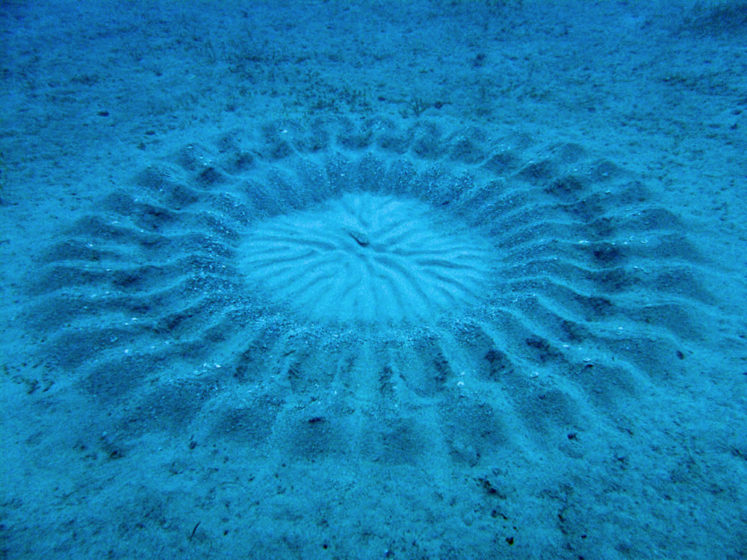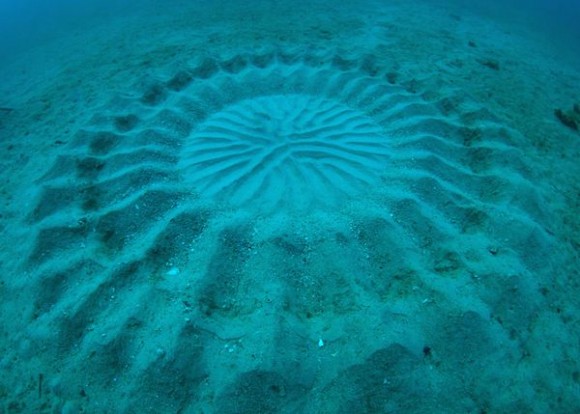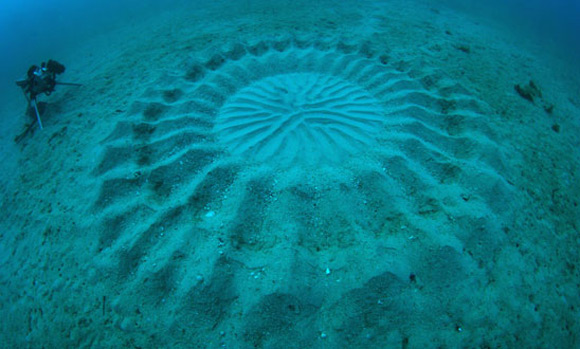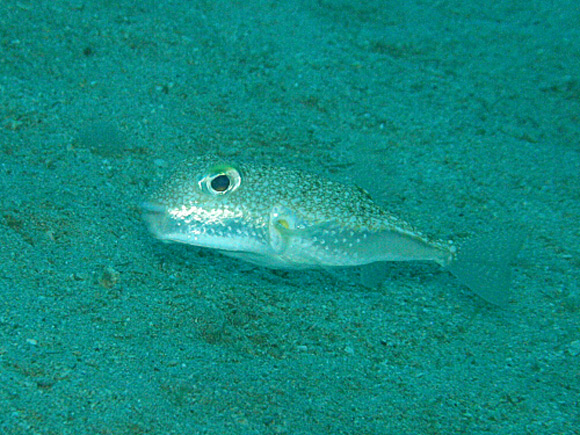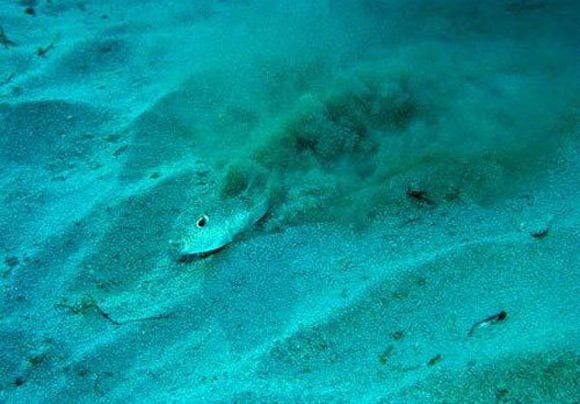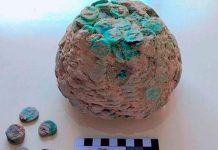Underwater Crop Circles – Planet earth is so strange, what lies keep underwater on earth has yet to be seen by human eyes. The discovery of amazing little puffer fish capable of creating elaborately designed ‘crop circles at the bottom of the ocean as part of an elaborate mating ritual.
The behavior was first documented by photographer Yoji Ookata as articles bounced around the web it was still difficult to imagine how a tiny fish could create such a large design in the sand, even when staring directly at photographic evidence.
Japanese photographer Yoji Ookata devoted his life just to exploring the planet earth, spending the last 50 years exploring and documenting his discoveries off the coast of Japan. One day, Ookata found something strange near Amami Oshima, which he had never witnessed before, rippling geometric sand patterns almost 6 feet in diameter, 80 feet below sea level.
He came back and returned with colleagues & television crew from the nature program NHK to document the mystery circle. He holds the underwater camera to capture the mystery circle and the reasons behind this marvel. He & his team discovered strange designs naturally designed by small puffer fish only a few inches in length that swim tirelessly through day and night to create vast organic sculptures using the gesture of a single fine.
Therefore, after careful observation, the team found the circles serve a variety of crucial ecological functions, the most important of which is to entice mates. However, the female fish are fascinated by the hills and valleys within the sand and traverse them carefully to discover the male fish where the pair eventually lay eggs at the circle’s center, the grooves later acting as a natural buffer to ocean currents that protect the delicate offspring.
Moreover, researchers also learned that the more ridges contained within the sculpture resulted in a much greater likelihood of the fish pairing.
Read More – Guoliang Tunnel: The Most Dangerous Tunnel in the World
